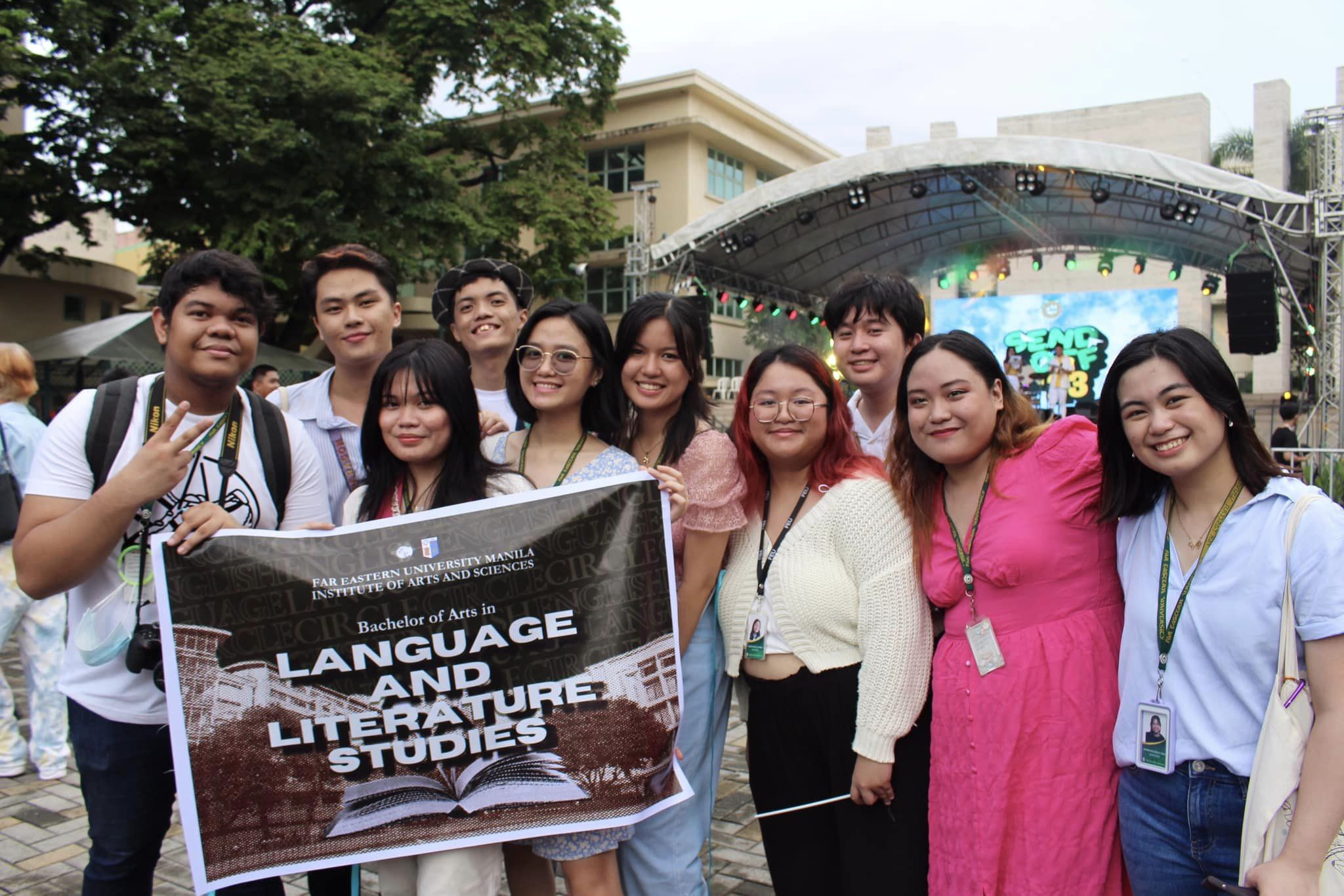The BALLS program is both aligned with the University’s thrust and designed to address the needs of the industry and community. The niche of the program highlights the strands of language and literature studies.
Program Curriculum
The current BALLS curriculum is an expansion of the 2018 new curriculum in language and literature. It adheres to the goals set in 2018 of CHED, whereby after completion of the course, learners can:
- interact effectively in a variety of situations;
- access and make use of information from a variety of sources and media;
- present information in an organized manner; and
- appreciate literature and other cultures and develop linguistic awareness.
Teaching-learning approaches
The BALLS program has been carefully crafted to empower our students into becoming independent, lifelong learners as future professionals. As such, this program utilizes the following varied teaching-learning approaches focused on learners’ needs and capabilities:
Language-based approaches
Many scholars who have done various studies in the context of language-based approaches (LBA) believe that the teaching of literature emphasizes the integration between language and literature in classroom teaching (McRae & Boardman, 1998; Carter & Long, 1991; McRae, 1991; Lazar, 1993). This approach is based on the principle that LBA can provide teaching literature with both literature and language, working in a symbiotic relationship. By incorporating LBA into literature classes the text becomes an interesting piece of work to be analyzed as the approach allows students to go one step further in analyzing its content which includes manipulation, transformation, experimentation and dissection.
Oral approach / situational language teaching
The oral approach is a method in which students to use whatever hearing they get from their surroundings. They also take help from the context to understand and use language. The target is to develop the skills in the individual so that he can communicate and function independently. This approach helps in the development of reading and writing skills (Richards and Rodgers, 2001).
Student-centered learning
The BALLS program adheres with the University’s educational philosophy and learning paradigm which emphasizes active and dynamic learning to develop the higher-order thinking skills of our learners. This entails designing engaging activities and encouraging collaboration between teacher and student inside the classroom to facilitate effective higher learning.
Didactic approach
The program utilizes a variety of lectures, discussions and demonstrations in developing theoretical and foundational knowledge in language and literature and other fields.
Interdisciplinary approach
BALLS offer a glimpse of professional practice through the lens of various disciplines. Coupled with the liberal GE courses which expose learners to the humanities and social sciences, the program hopes to produce well-rounded, adaptable and analytical professionals and practitioners of English and other languages.
Blended learning
The BALLS program recognizes the changing technological landscape which our current generation of learners must navigate. Geared towards ubiquitous and independent learning, some courses are delivered through a mix of online virtual classrooms, self-study modules and face-to-face sessions. The University utilizes Canvas, a world-class learning management system to facilitate this mode of delivery.
Research-based approach
Aside from didactic and demonstrative approaches, the program utilizes case studies and research-based materials to ensure that learners are provided with updated knowledge and practices in the language and literature. Moreover, the program encourages learners to develop an inclination towards research and scientific thought.
Assessment and Research Work
Throughout the course of the program, varied assessments and assessment-related tasks are deployed depending on the negotiation between the teachers and the learners. Teachers are encouraged to develop relevant formative assessments designed to help learners prepare for capstone summative assessments.
Assessments are a combination of traditional pen-and-paper tests, practical examinations, research work and performance-based tasks. These include quizzes and summative tests, reports and presentations, case analyses, research-based writing, return demonstration and peer assessments. Apart from course-based assessments, research is also combined into the curriculum such as the course Language and Literature Research Paper Writing and Presentation.
Internship
Students cannot complete the program without undertaking internship or practicum, which comprises six (6) units of their coursework.
During practicum, BALLS learners are expected to undertake actual work immersion in their chosen company.


